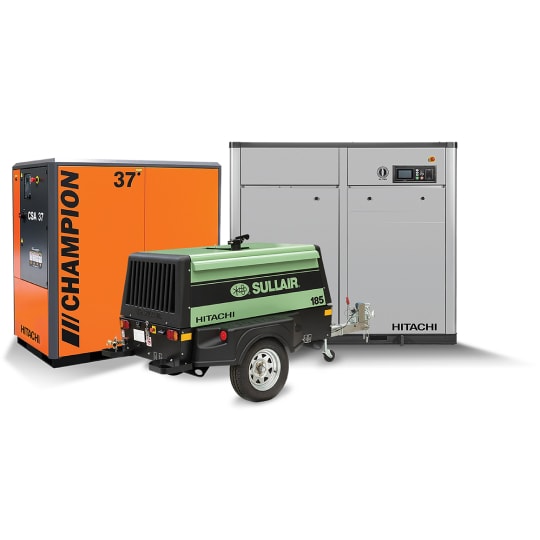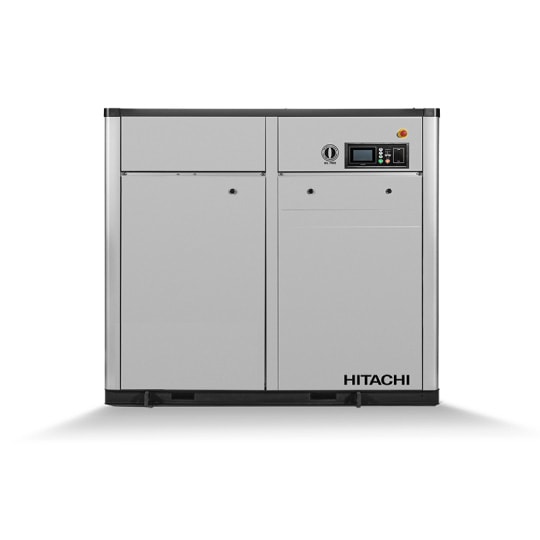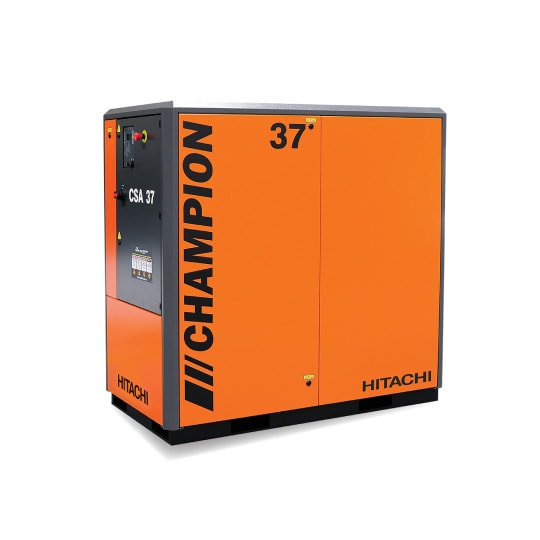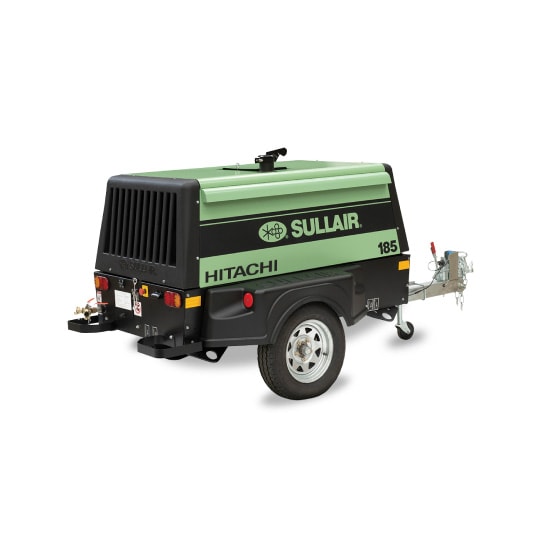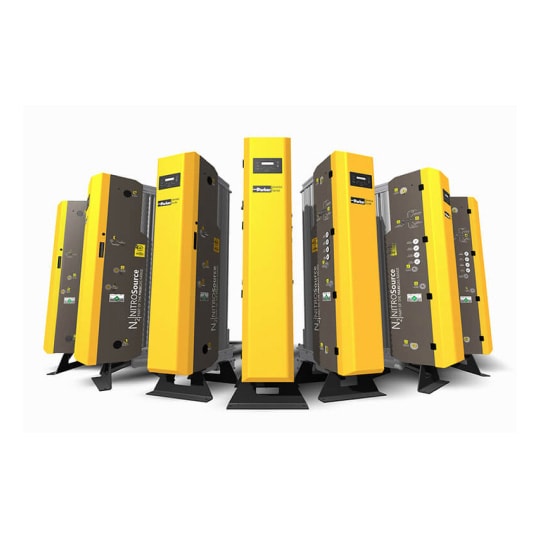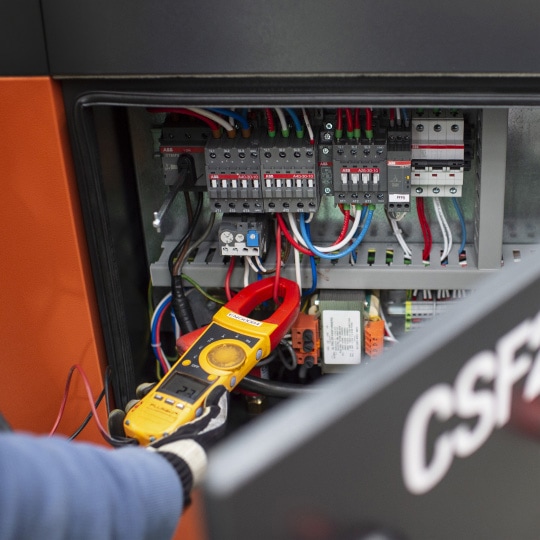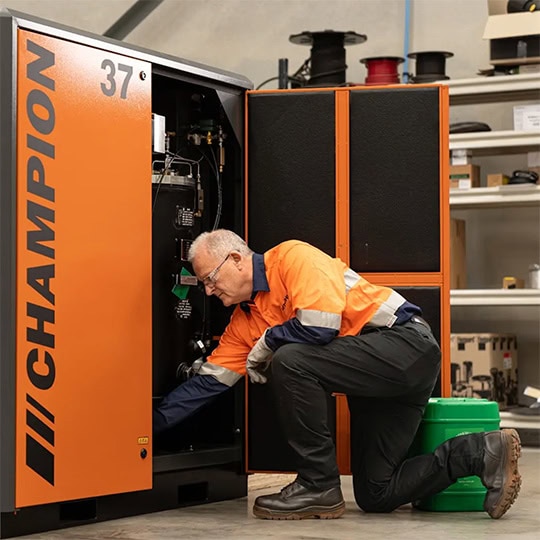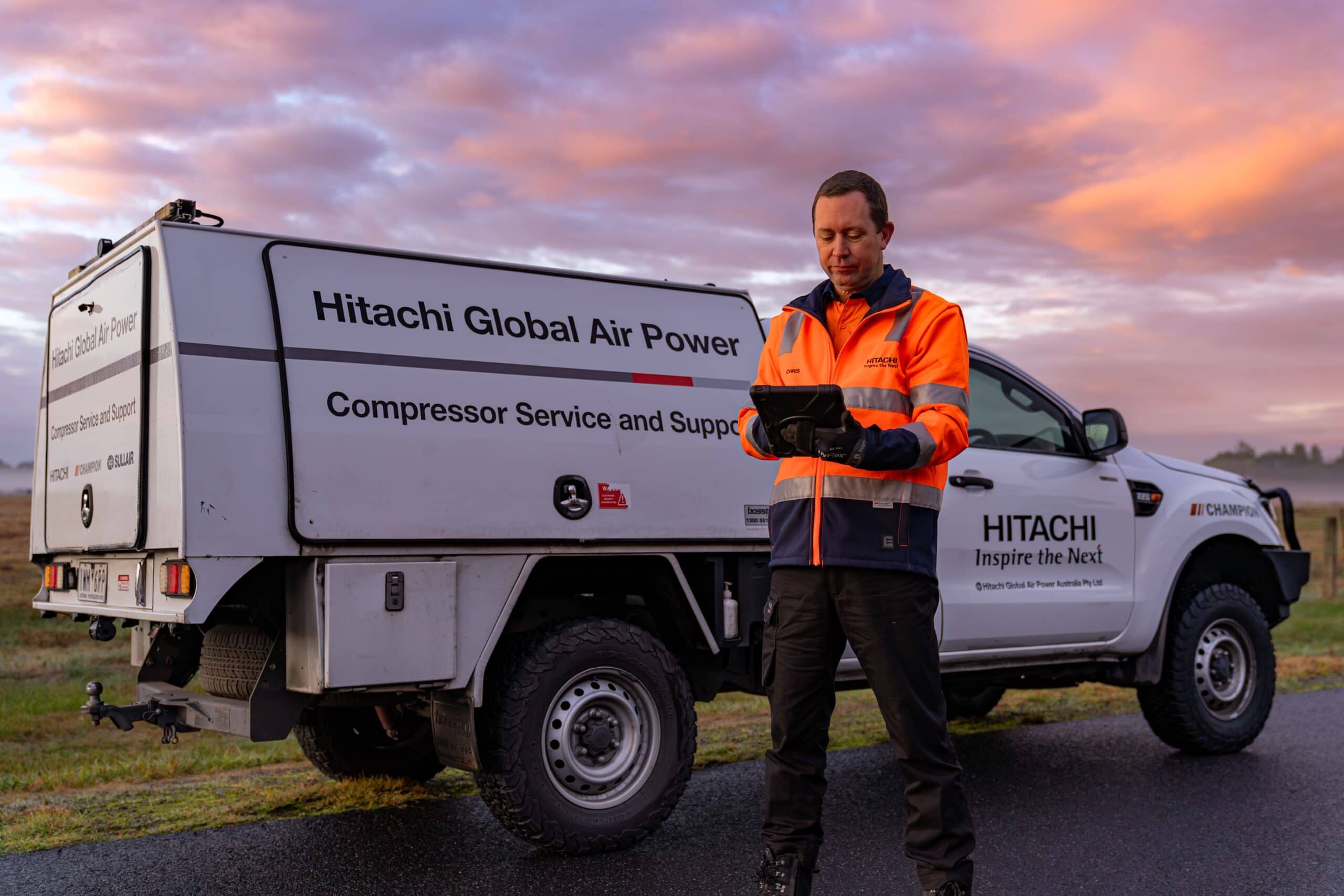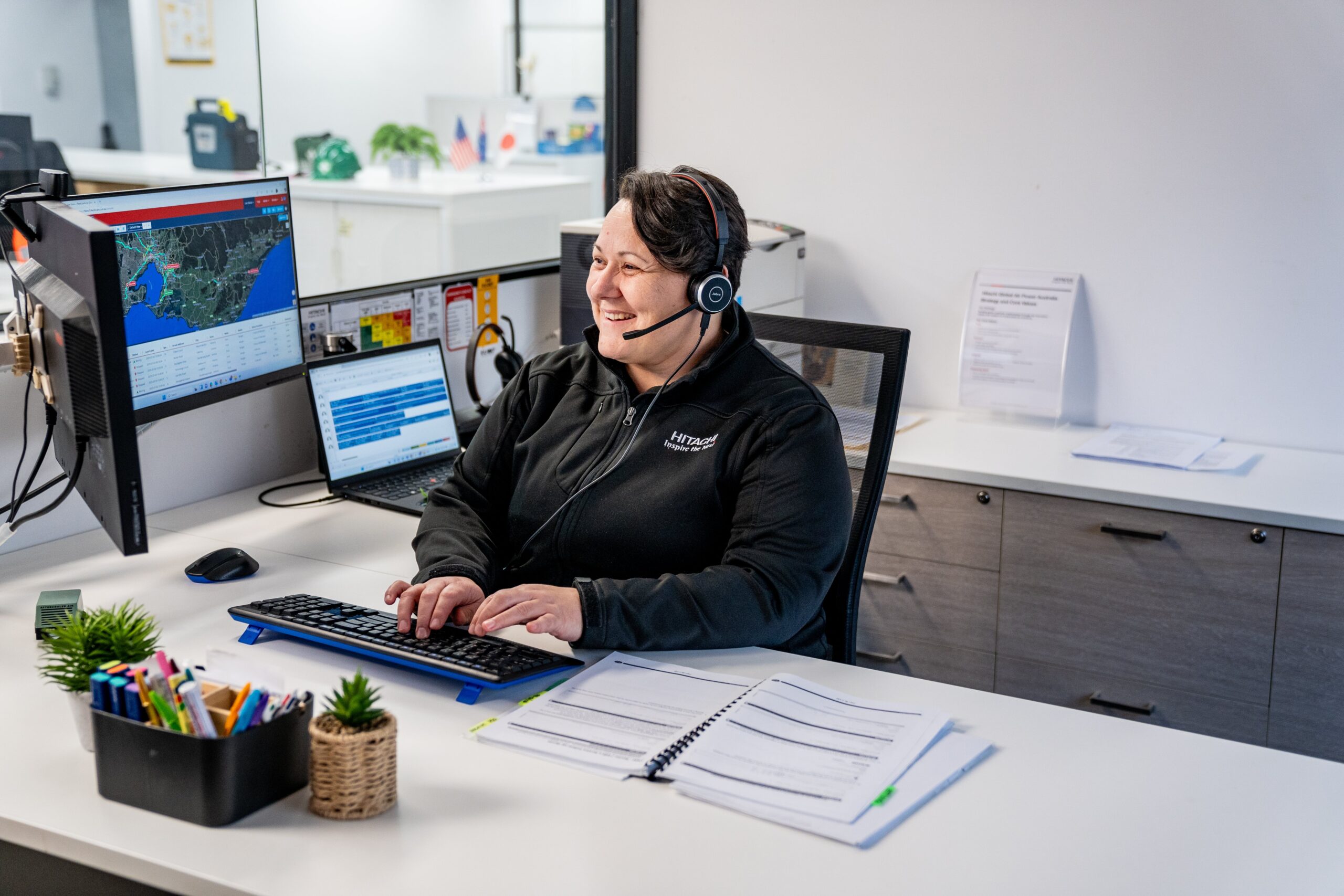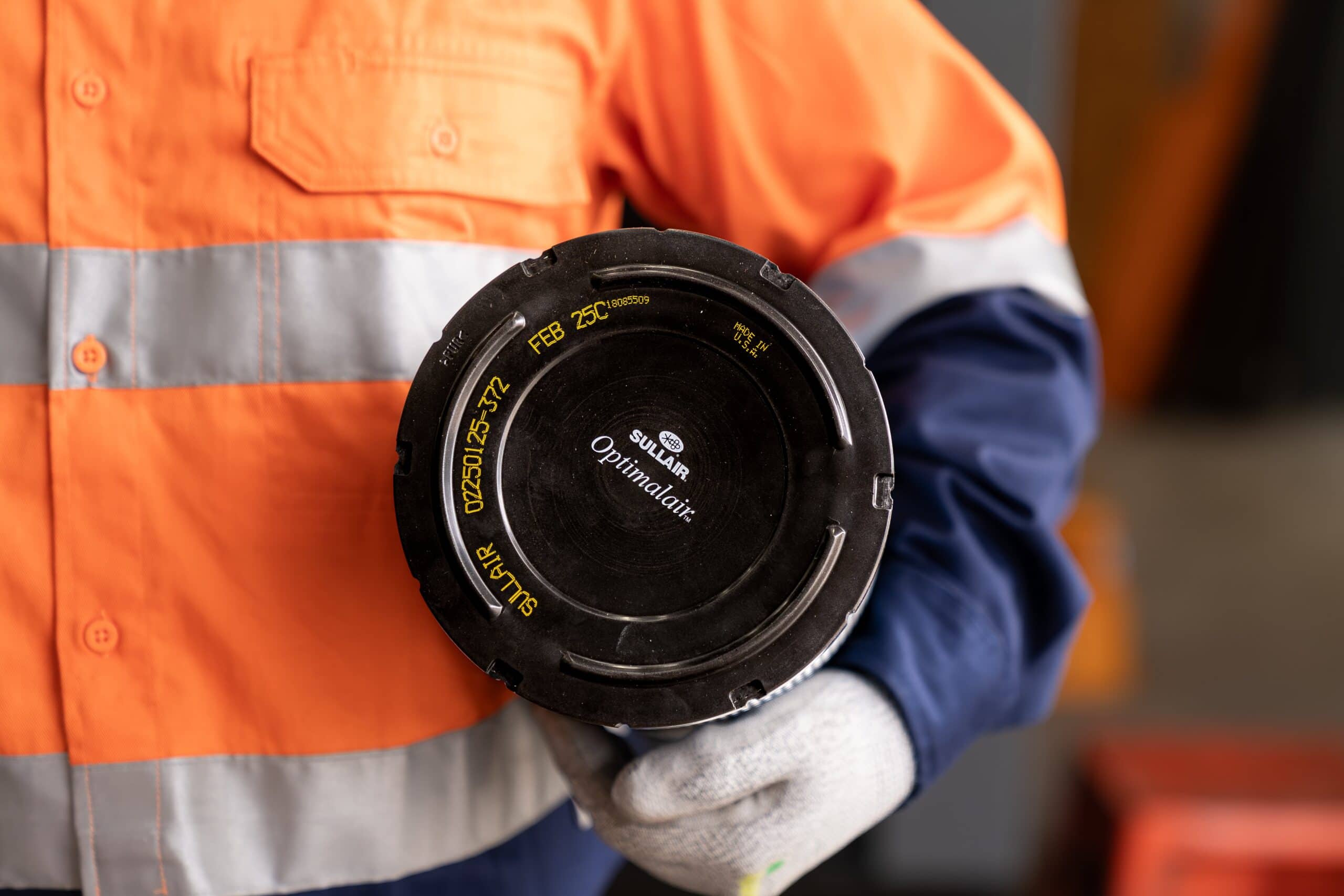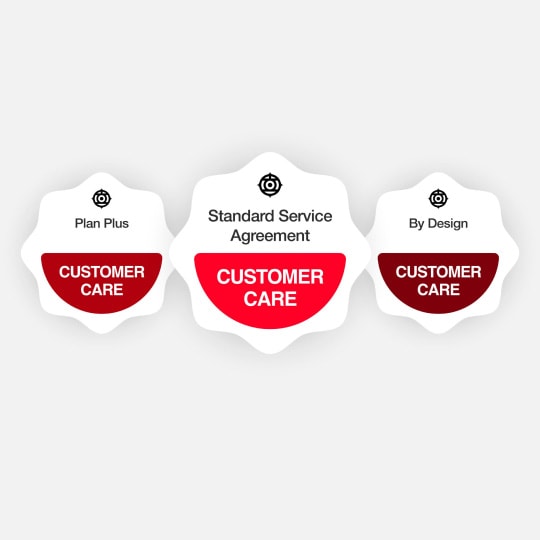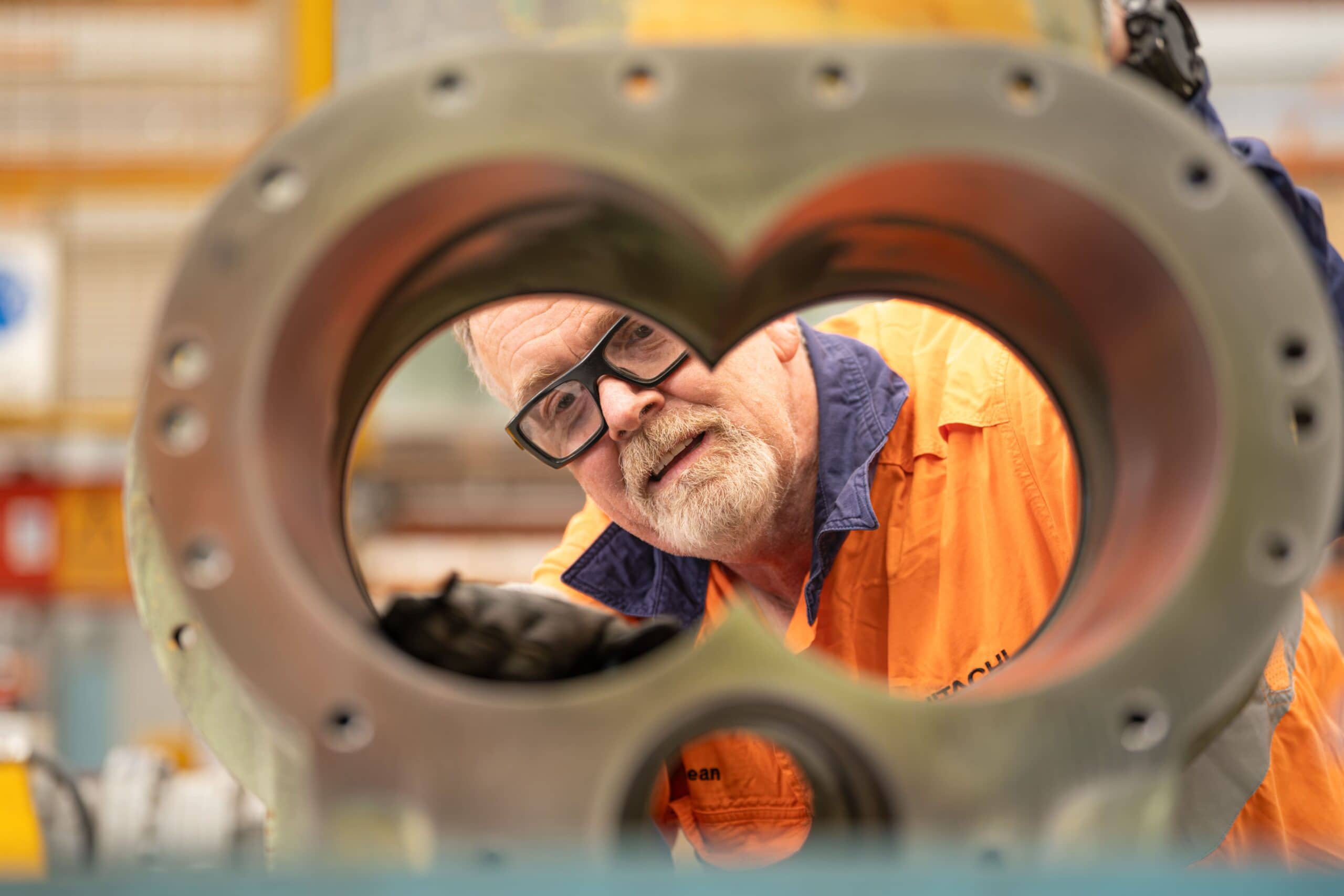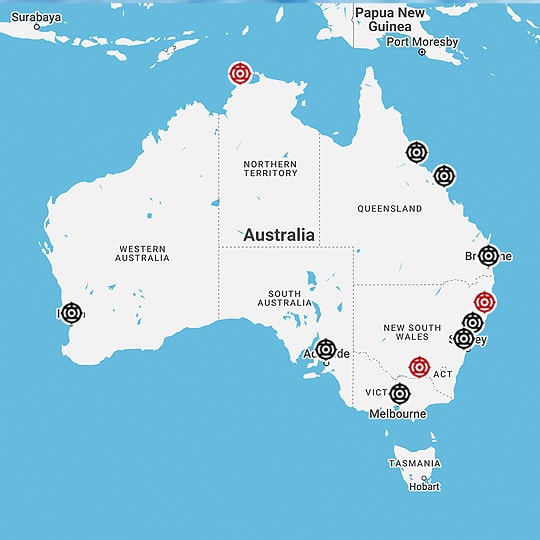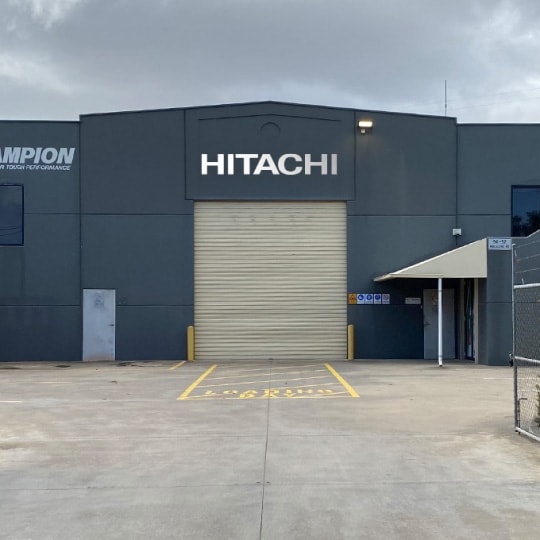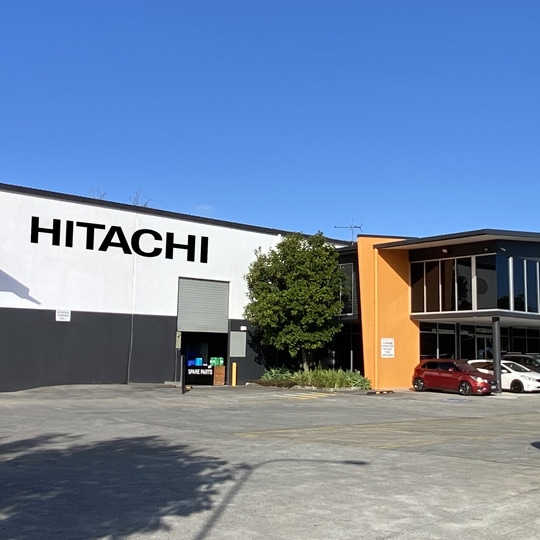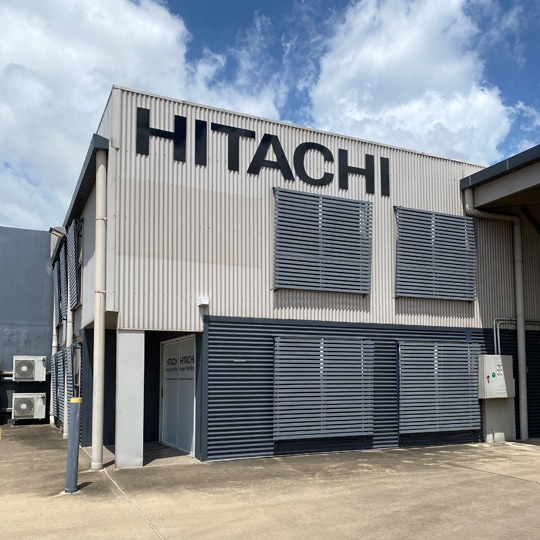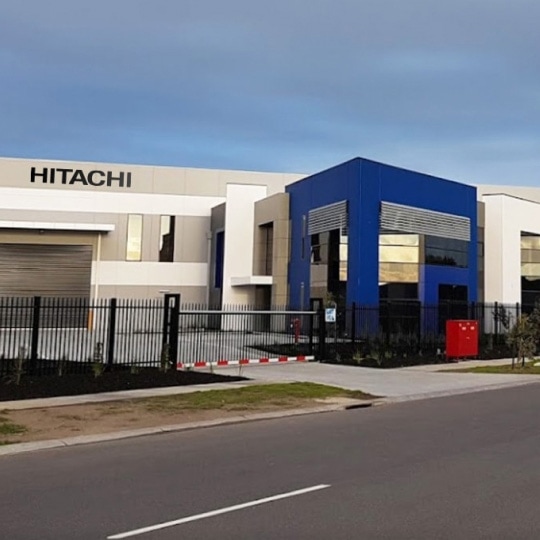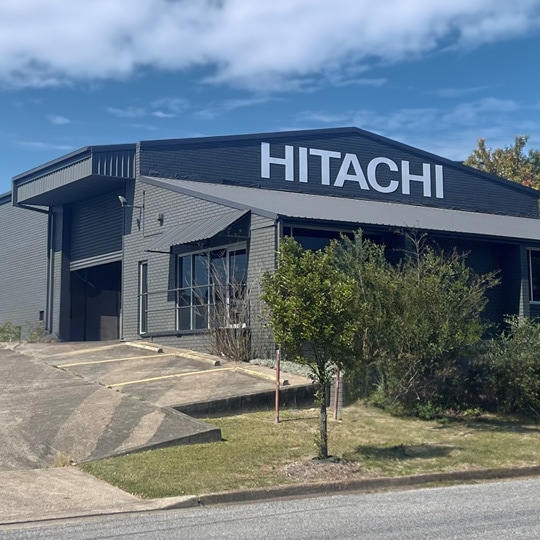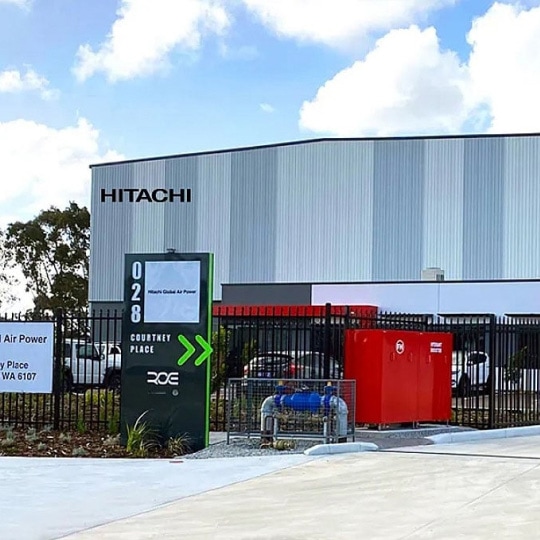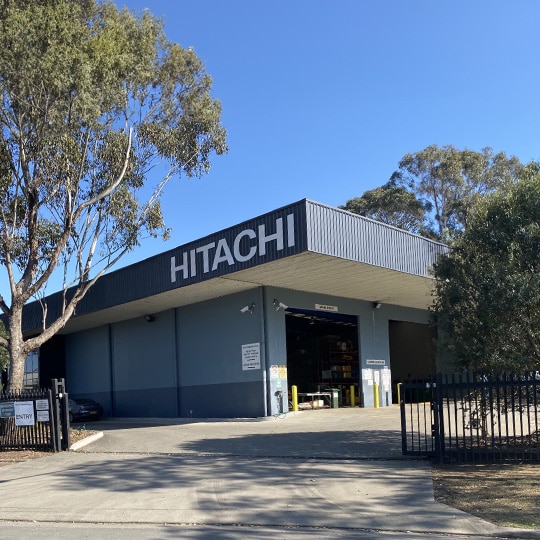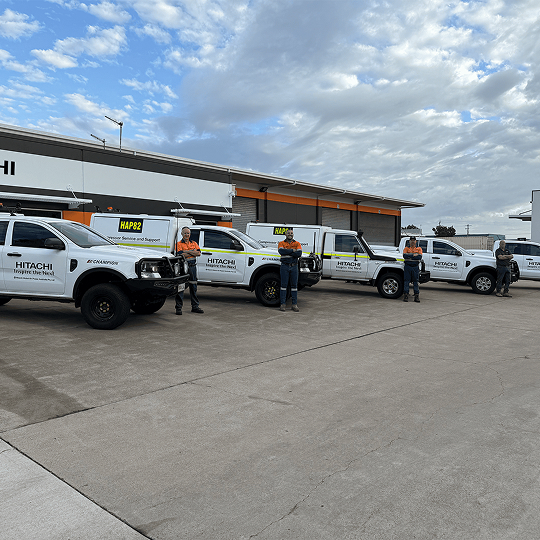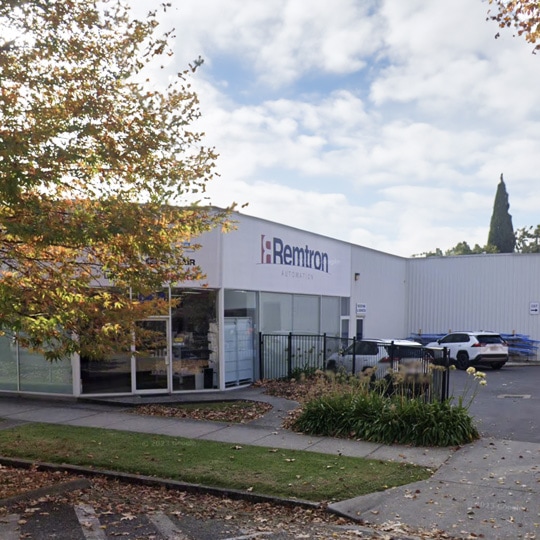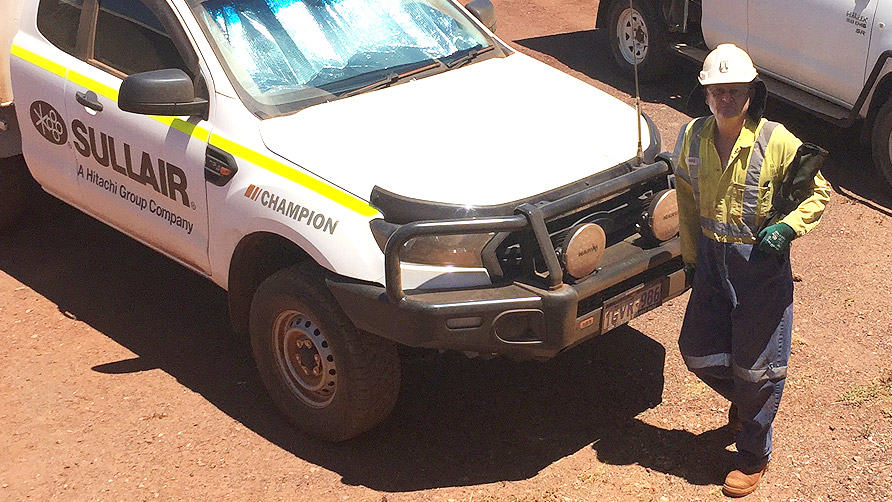
For Sullair staff working out in the field in some of the remotest parts of Australia, there’s never really a ‘normal’ day in the office. Especially when the office is the car, and the car is parked at one of the biggest, hottest, dustiest mine sites in the country.
But that life is normal for Mike Buckles, who has been part of the Sullair team for the past few decades, enjoying the FIFO life, out of WA and into sites all over the country. He’s worked his way up the ranks and today is a Leading Hand Field Service Technician across a number of WA customer sites for many of Sullair’s biggest clients.
“Being remote technicians, we’re basically running our own mini branches wherever we are. Our vehicles become our offices. We have laptops, iPads, and mobile phones and plan everything out from there at the start of each job,” explains Mike, “this includes anything from quoting, to planning, to ordering of parts, which is crucial when shipments need to come from Germany, China or the USA.”
Mike’s early days with Sullair started out as a field service technician in a very small workshop in Perth’s Belmont. In those days, the work was more focussed in the metropolitan area, responding to service calls for Champion compressors – the primary equipment at the time. More broader field work evolved gradually, with 5-day trips to Kalgoorlie in the Goldfields region, every few months. In the mid-1990s, the business started to get more anchored into WA and field service technicians became an integral part of mining industry operations across Western Australia. One of the biggest sites in WA then was the Argyle Diamond Mine – which was at the time, the biggest producer of diamonds in the world. “Those trips were longer – 3 hours flying in, ten days on-site and three hours flying out, roughly every 3 months. As their business grew, so did ours. We got more heavily involved and established a more routine cycle of visits.”
In those days, Sullair Australia became heavily involved with drill rigs. There was quite a bit of training required at that stage, so a Sullair trainer flew over from the US office to provide training to the Australian team and the local Sullair/Champion customers. It was through that period, that Mike gained valuable on-the-job training that would see his career progress in the coming years. “I was fortunate enough to follow him around and get a lot of experience from him in training,” he explains. “We were flying around the countryside, all over Australia doing repairs. When the OEM needed us to go look at those units – we’d be there in remote mine sites, or exploration sites in remote parts of the bush. That involved flying to an area, then driving 2 to 3 hours into the middle of nowhere to get the work done.”
When iron ore mining started to peak in early 2008, things started to change for Sullair’s WA operations. With the drillers now trained and passing on experience, a lot of people were getting more familiar with the Sullair product and didn’t need as much help; plus, a lot more could be done over the phone. “Once the boom kicked in, us technicians were mainly going around to the other big iron ore companies,” Mike explains.
“Some sites could have 30 to 40 compressors, with all the ancillary dryers and receivers, so we would be delivering general service work and repairs to all the compressors on site.”
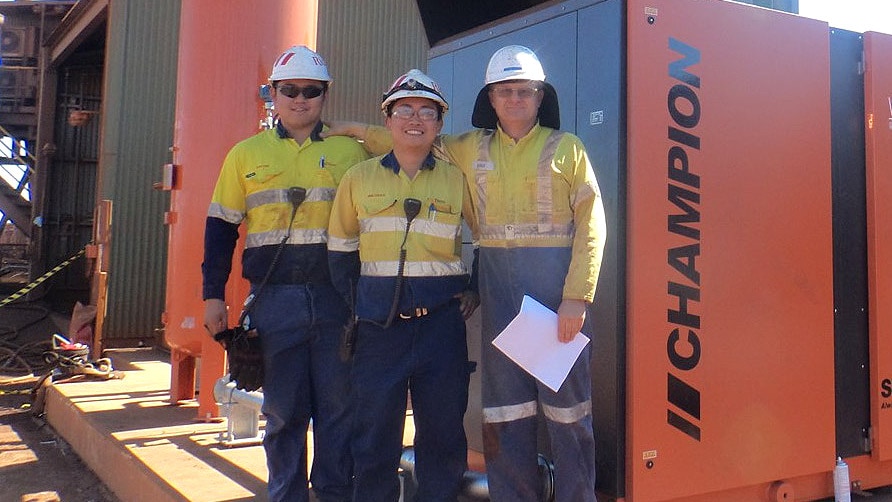
Today, operations are planned months ahead with remote and metro teams working together to smoothly and cleanly coordinate the logistics around parts, equipment, service and maintenance. Planning is done 6 to 8 weeks in advance, so everybody knows where they’ll be in the months ahead. This means flights, accommodation and transport are sorted, with parts ordered and on their way in time for the site visit. Although we aim for 12 to 13 week visits to site, obviously it has to move around because sites have shut downs, we may not be able to get on site due to accommodation restrictions and so on. Even though we’ve got all of these sites that may have 4 or 5 visits a year it doesn’t necessarily mean it will pan out that way. Planning is everything.”
The remoteness remains unchanged of course, so Mike’s role is still very much FIFO. “All the vehicles are up north, fully kitted-out for remote work. We pick different airports and park the cars wherever we finish the job, or at the airport closest to the next job. Sometimes it’s a short flight in then a 3 to 6 hour drive to the site, while other times we fly in and are on site within the hour.”
Once on-site, an ‘average’ day usually starts around 4.45 am, depending on how far away the camp is from site, then at 6 am the pre-start meeting begins. This can last from 15 to 45 minutes and is the chance for everyone to come together and plan the day. Work revolves around a GANNT schedule that covers a 10 day period and details the essential work to be done to ensure Sullair’s KPIs are achieved. “We go through what safety improvements we did the day before, what hazards we found and advise the relevant staff where to apply caution. We discuss who’s doing what, so we all know which person is going to work in which area.” Mike says there’s no such thing as an ‘average’ day. “It’s very difficult from our side of things because we’re on-site – if someone’s got a problem, we have to go check it out before we can start the planned work of the day.”
Working in some of Australia’s harshest and most remote locations can be challenging, but Mike loves the unique nature of his work. “It’s usually a 12 hour day when we’re on site. We stop for breaks, but the job can be very hot, humid, dusty, noisy, and dirty, with lots of hazards within the machines.” Mike’s role offers him autonomy and responsibility, factors that deliver him a sense of pride and satisfaction in his daily work. “It’s one of those roles that can’t be policed easily – because we’re so remote, expectations are high around implementing company policy. I like the fact that Sullair has faith in me to do that role with confidence.”
He also values the opportunities it has given him and his family. “A company like Sullair has such a large range of equipment and a huge footprint – it’s never a dull moment! Working with Sullair has given me the opportunity to have a lifestyle that my whole family has benefited from. I do work away a lot but when I’m home I can do a lot of things other families aren’t able to do.”

